Introduction
ADHD (Attention Deficit Hyperactivity Disorder) is a brain disorder marked by an ongoing pattern of inattention and/or hyperactivity-impulsivity that interferes with functioning or development.
ADHD has three sub-types
Predominantly hyperactive-impulsive
- Most symptoms (six or more) are in the hyperactivity-impulsivity categories.
- Fewer than six symptoms of inattention are present, although inattention may still be present to some degree.
Predominantly inattentive
- The majority of symptoms (six or more) are in the inattention category and fewer than six symptoms of hyperactivity-impulsivity are present, although hyperactivity-impulsivity may still be present to some degree.
- Children with this subtype are less likely to act out or have difficulties getting along with other children. They may sit quietly, but they are not paying attention to what they are doing. Therefore, the child may be overlooked, and parents and teachers may not notice that he or she has ADHD.
Combined hyperactive-impulsive and inattentive
- Six or more symptoms of inattention and six or more symptoms of hyperactivity-impulsivity are present.
- Most children have the combined type of ADHD.
Hyperactive boy
A short history of ADHD
In 1980, DSM III defines “Attention Deficit Disorder, with or without hyperactivity”, thus distinguishing between ADD and ADHD, and listing “inattention, impulsivity and hyperactivity” as essential features. Virginia Douglas investigates specific disabilities of hyperactive children in 1970, suggesting that a core group of symptoms involving inability to sustain attention and to control impulsivity can account for most of the deficits.
Prevalence factors
ADHD prevalence rates may vary depending on several factors:
- Age – ADHD can affect people of all ages, and ADHD prevalence rates are known to vary between children, adolescents and adults
- Gender – a higher prevalence of ADHD is often reported in males
- Presentation of ADHD – the predominantly inattentive presentation of ADHD is considered most prevalent in school-age children, adolescents and adults
- ADHD is often present alongside psychiatric comorbidities such as oppositional defiant disorder, conduct disorder, anxiety disorder, personality disorders and depression, which may further complicate understanding of true prevalence rates.
Reported ADHD prevalence rates vary worldwide, mainly due to methodological differences between studies. A meta-analysis of studies (n=102) of children and adolescents diagnosed with ADHD found that the prevalence of ADHD in individuals aged ≤18 years varied between countries worldwide; the prevalence estimate for Europe specifically was just under 5%
Causes of ADHD
The cause(s) and risk factors for ADHD are unknown, but current research shows that genetics plays an important role. In addition to genetics, there are other possible causes and risk factors including:
- Brain injury
- Exposure to environmental (e.g., lead) during pregnancy or at a young age
- Alcohol and tobacco use during pregnancy
- Premature delivery
- Low birth weight
Signs and symptoms
- Inattention means a person wanders off task, lacks persistence, has difficulty sustaining focus, and is disorganized;
The main signs of inattentiveness are:
- Short attention span and being easily distracted
- Making careless mistakes – for example, in schoolwork
- Appearing forgetful or losing things
- Being unable to stick at tasks that are tedious or time-consuming
- Appearing to be unable to listen to or carry out instructions
- Constantly changing activity or task
- Having difficulty organizing tasks
- Hyperactivity means a person seems to move about constantly, including in situations in which it is not appropriate; or excessively fidgets, taps, or talks.
The main signs of hyperactivity and impulsiveness are:
- Being unable to sit still, especially in calm or quiet surroundings
- Constantly fidgeting
- Being unable to concentrate on tasks
- Excessive physical movement
- Impulsivity means a person makes hasty actions that occur in the moment without first thinking about them and that may have high potential for harm; or a desire for immediate rewards or inability to delay gratification.
- Excessive talking
- Being unable to wait their turn
- Acting without thinking
- Interrupting conversations
- Little or no sense of danger
Diagnosis and test
There’s no specific test, but making a diagnosis will likely include:
- Medical exam, to help rule out other possible causes of symptoms
- Information gathering, such as any current medical issues, personal and family medical history, and school records
- Interviews or questionnaires for family members, your child’s teachers or other people who know your child well, such as baby sitters and coaches
- ADHD criteria from the Diagnostic and Statistical Manual of Mental DisordersDSM-5, published by the American Psychiatric Association
- ADHD rating scales to help collect and evaluate information about your child
Treatment and medications
The first line of treatment for ADHD is stimulants.
- Stimulants: Stimulants are effective because the medication increases the brain chemical dopamine, which plays essential roles in thinking and attention.
- Non-Stimulants: These medications take longer to start working than stimulants, but can also improve focus, attention, and impulsivity in a person with ADHD. Two examples of non-stimulant medications include atomoxetine and guanfacine.
- Antidepressants: Although antidepressants are not approved by the U.S. Food and Drug Administration (FDA) specifically for the treatment of ADHD, antidepressants are sometimes used to treat adults with ADHD. Older antidepressants, called tricyclics, sometimes are used because they, like stimulants, affect the brain chemicals norepinephrine and dopamine.
Therapy
Adding therapy to an ADHD treatment plan may help patients and families better cope with daily challenges.
- Behavioral therapy is a type of psychotherapy that aims to help a person change his or her behavior. It might involve practical assistance, such as help organizing tasks or completing schoolwork, or working through emotionally difficult events.
- Family and marital therapy can help family members and spouses find better ways to handle disruptive behaviors, to encourage behavior changes, and improve interactions with the patient.
Can You Prevent ADHD?
Though there is no way to prevent ADHD , there are ways to help all children feel and do their best at home and at school.
Can good prenatal care help to prevent ADHD?
Complications of pregnancy are linked to ADHD. You can increase the chance of your child not having ADHD by staying healthy throughout yourpregnancy. A healthy diet and regular doctor visits are important. So is avoiding the use of alcohol and drugs.
Children whose mothers smoked while they were pregnant are twice as likely to develop it. Some studies suggest a pregnant woman’s exposure to lead, as well as lead exposure in early childhood, may be linked to ADHD. Other studies are exploring the possible connection between premature birth and ADHD.
Does diet play a role in preventing ADHD?
Giving your child a healthy, balanced diet from an early age is good for all children, whether or not they have it.
Some experts believe that altering a child’s diet may reduce hyperactive behavior. Ben Feingold developed a popular diet designed to lessen hyperactivity. It is an elimination diet that targets artificial colorings, flavorings, and preservatives. The medical community hasn’t accepted the diet, and some studies have disproved Feingold’s theory. Still, many parents who have tried the diet reported an improvement in their child’s behavior.
There is no scientific proof linking ADHD to sugar. Processed sugars and carbohydrates may affect a child’s activity level by rapidly raising blood sugar levels. This blood sugar spike may produce an adrenaline rush that could cause a child to become more active, followed by a “crash” in activity and mood as the adrenaline levels fall.
 Diseases Treatments Dictionary This is complete solution to read all diseases treatments Which covers Prevention, Causes, Symptoms, Medical Terms, Drugs, Prescription, Natural Remedies with cures and Treatments. Most of the common diseases were listed in names, split with categories.
Diseases Treatments Dictionary This is complete solution to read all diseases treatments Which covers Prevention, Causes, Symptoms, Medical Terms, Drugs, Prescription, Natural Remedies with cures and Treatments. Most of the common diseases were listed in names, split with categories.
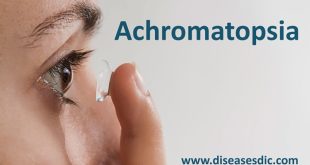
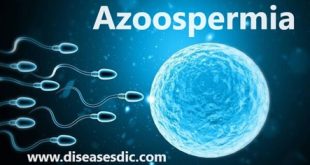
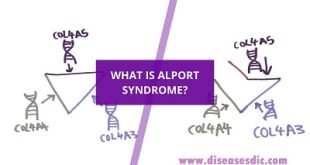
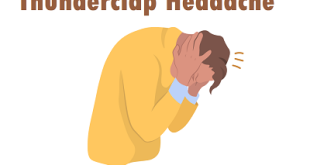
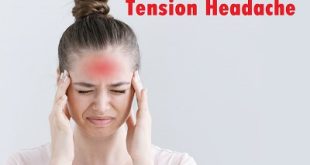
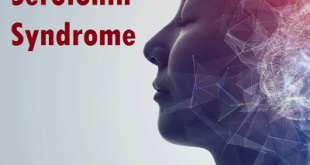
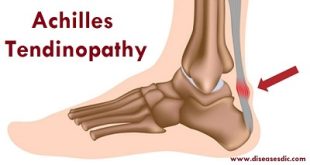

how ADHD can be treated in age of 5 years????
For children under 6 years of age, ADHD can be treated with behavior therapy first, before trying medication. Behavior therapy is the recommended treatment for ADHD in children under 6. The type of behavior therapy that is most effective for this age is parent training in behavior therapy, meaning that therapists work with parents and teach them the skills needed to help their child better manage their ADHD.
what is adhd treatment in the adolescent?
Usually, a combination of medication and behavior therapy is best in treating teens with ADHD. Stimulant medications are commonly prescribed to treat teens with ADHD. These drugs may make teens more alert and help them do better at school. Examples of stimulant medications include dexmethylphenidate (Focalin, Focalin XR), dextroamphetamine (Adderall, Adderall XR), lisdexamfetamine (Vyvanse), methylphenidate (Concerta, Quillivant XR, Ritalin), and mixed salts of a single-entity amphetamine product (Mydayis). Non-stimulant medications such as Intuniv, Kapvay, and Strattera are also used to treat teens with ADHD. Non-stimulant medications for ADHD have different side effects from stimulant drugs.
My son is little slow. He is 9year old.. I don’t think that he is adhd coz he is not active… Last year we had check his iq.. Doctor said his iq level is below line.. It’s 86..What should I do for improving his iq… Or is it any other problem…
Please consult with a psychiatrist to reduce the risk of low IQ level further.
There are 5 main types of ADD/ADHD. They all have various characteristics and symptoms that make them distinguishable from the other types. They are dictated by the shape of the brain, the groves and valleys on the top side of the brain. Proper nutrition and diet is the key factor that causes ADD/ADHD. A well balanced diet with all vitamins from A-Z will alleviate the disorder and help with healthy brain formation and function.
I could never read during school more than 2 lines cuz i did not retain it. I tried street meth at 15y.o. It calmed me down and allowed me to think systematically. I used until I was 33y.o. I’ve been to several rehabs. I finally went to test for add and Do Ind to have add. I have some trouble taking it correctly but it helps me study the bible and the Christian way of life. wat is your advice for me to be able to take meds correctly. only near my fill date Do I have trouble
I have a 2 and half yr old grandson that is WAY overly active ..he hardly sleeps. He get into any and everything that he can get his hands on..he doesn’t play with things for a period of time. he picks one thing up and 5 sec later he has found 20 other things to get into. you have to be basically eye to eye with him 24 7 if you turn to sneeze…he’s GONE.
He is soooo hyper my daughter is considering giving him up to someone that can help and handle him….what can I do to help him
Channelise Their Energy: Playing with activities and means to vent their energy and calm their minds. Children need to run around and play a lot.
Talk To Your Child In A Simple Manner: Give them your complete attention and lend an ear to their concerns, interests, and apprehensions.
Help Them Deal With Their Feelings
Make Them Relax
Behaviour Therapy
Outdoor Sports For Constant Activity
Music To Calm The Mind
Music To Calm The Mind
Theatre For Creative Engagement
Nature Trails To Soothe The Body
I would like to now names of drugs for ADHD treatment because I have ADHD
ADHD Medications for Adults and Children: Which Are Best?
Adderall XR (amphetamine)
Concerta (methylphenidate)
Dexedrine (amphetamine)
Evekeo (amphetamine)
Focalin XR (dexmethylphenidate)
Quillivant XR (methylphenidate)
Ritalin (methylphenidate)
Strattera (atomoxetine hydrochloride)
Note: It would be better to consult a doctor for appropriate drugs.